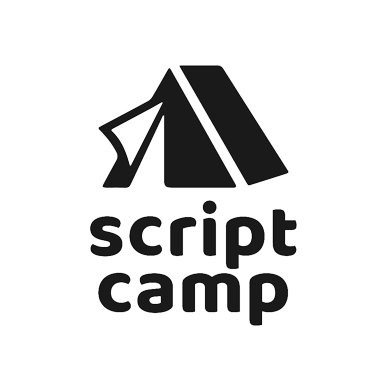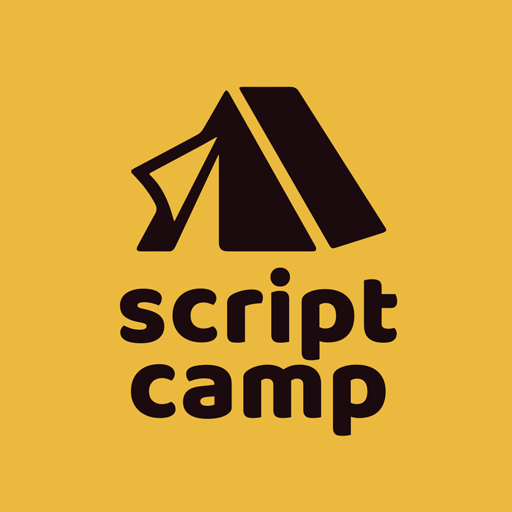Description
Join pro writer Conor Kyle for a twelve-week crash course on writing novels. Geared toward (but not limited to) commercial fiction, we will develop killer premises, build out compelling worlds, and complete a 50,000-90,000 word manuscript fulfilling our genre promises in unexpected ways. Examples of popular commercial fiction genres include fantasy, science fiction, crime/mystery, romance, thriller and horror.
Bring your ideas and loglines!
This course is ideal for:
- beginning writers seeking to understand the core concepts of prose and novel writing,
- experienced writers who want to write a brand new novel draft in a more formal setting with the guidance of an experienced writer
About the Instructor:
Conor Kyle has written for Shudder’s Creepshow (2019) and placed twice in the Nicholl Fellowship with his scripts “Peter and the Wolves” (quarterfinals, also Launchpad top 10) and The Tube (semifinals). His work has also been featured on special sections of the annual Hit List, Young & Hungry List, Spec Book, and on Tracking Board’s “Best Writers of the Year” booklet. You can view Conor’s previous class videos on
- Twitter: https://twitter.com/TheScriptCamp
- Youtube: https://www.youtube.com/c/ScriptCampVideos
- Twitch: https://www.twitch.tv/scriptcamp
- Facebook: https://www.facebook.com/TheScriptCamp
12-Week Bootcamp Schedule:
Week 0: Intro to Novels (Sep 17)
This free class provides an overview of how to write a book. What is commercial fiction, versus literary, upmarket, or other classifications? Whether you stick to the conventions or bend them, your ability to write a compelling novel requires a deep understanding of the style and structure of your genre. We’ll study different genres, and discuss their nuances and expectations. Last, we’ll lay out the basics of tense, voice, and viewpoint.
- -Understand the differences between types of novels, and begin to brainstorm how your pre-existing ideas might fit into these molds.
- -Examine some of the basics of effective prose
- -Begin brainstorming your initial premise.
- -Start reading! Several novelettes will be offered as options.
Week 1: Prose / Premise (Sep 24)
This class will be a crash course on the English essentials required to write an effective book. What makes clear, detailed, beautiful prose? How can we diagnose a sentence and improve it? Afterward, we’ll look at premises (both high-concept and execution dependent) and start to think of how your own premise might act as the foundation for your entire story.
- -Heavy focus on grammar, punctuation, syntax, structure, and style.
- -Develop the logline for your book’s premise.
- -Start filling out your sketchbook of ideas.
- -Write one paragraph of fiction to turn in for next week.
Week 2: Loglines and Queries (Oct 1)
We’ll now review loglines, with the goal of finalizing them by the end of the session. This single sentence expression of your book’s premise will serve as an effective piece of marketing, as well as a guidepost to aid in the construction of a cohesive story. Afterwards, we’ll look at query letters. While it may seem early to do so, sketching out the basics of your query can help you visualize a condensed version of your plot from a bird’s-eye perspective.
- -Feedback on paragraph assignment.
- -Finalize logline.
- -Examine pro queries and brainstorm ideas for your own.
Week 3: Characters (Oct 8)
This week, we’ll continue to improve your book’s premise, and begin to populate it with characters. We’ll study the essentials of designing a cast. All of this will help you to design a group of memorable people to tackle the dangers and trials of your plot. Last, we’ll look at novelistic dialogue, and ways to improve both character and authorial voice.
- -Design a cast of interesting characters
- -Learn how to use dialogue tags, beats, and free indirect speech.
- -Begin to figure out the essential steps of your protagonists’ journeys.
Week 4: Building the World (Oct 15)
This class looks at structure and worldbuilding. We’ll begin by looking at sci-fi, fantasy, and historical books, and breaking down the complex ways that these authors teach the reader the basics of their worlds. We’ll discuss “learning curve,” and begin to apply these principles to your early outlining materials. Then for the second hour, we’ll thoroughly examine plot structure. All of this is intended to put you on the path toward writing a full story beat outline by the end of the following week.
- -Learn essentials of worldbuilding.
- -Complete story beats outline.
Week 5: Outlining: The Roadmap (Oct 22)
Time to start getting concrete. This class focuses on nailing down every scene from your story as a “scene card,” which is a synopsis for every key moment in your story. ScriptCamp heavily emphasizes this part of the process, and we will make an exhaustive page-by-page roadmap through your entire screenplay.
- –Start work on scene cards: full paragraph for every scene.
Week 6: Outlining: Scene Cards (Oct 29)
This final week of pre-writing takes us to the end of the scene cards! You’ll need to finish the complete map of your story by the end of the following week, and this class serves as a QA to assist with any questions or issues you’re having with your own work. After this first 6 weeks of prep, you’ll see the shape of your story start to clarify into a cohesive plan for an entire novel.
- -Complete scene cards.
- ? Ready to start writing pages by Nov 5! ?
Week 7: Beginnings (Nov 5)
Time to start writing pages. This class begins with a lecture on first acts: intro to catalyst. We’ll read some excerpts from first pages and first chapters of published books to get a sense of everything we need to accomplish in these vital opening pages. As an activity (time permitting) we’ll dive into writing the first few paragraphs of our stories.
- -Keep writing 10-15k words per week.
- -Get started on your first page in today’s class!
Week 8: Transitions (and magic!) (Nov 12)
You’ve finished the first ten to twenty thousand words of your manuscript, so this class focuses on your first act break. How do we diagnose whether we’ve done everything we need to do in act one? We’ll heavily emphasize a propulsive boost into the “fun and games” of your second act, balancing B-stories, and more. This week we’ll also look at Magic Systems. Do rules matter? How can you balance different types of fantasy in your story? What are some interesting quirks or costs to the magic that can create compelling scenes throughout your book?
- -Keep writing 10-15k words per week.
Week 9: Act 2 (Nov 19)
This class follows us into the deep dark woods of your script: the second act. We’ll go over the creation of key sequences that fulfill your early promises, and review how to find the fun in your premise to mine its full potential. Time permitting, we will look at tips for creating speculative creatures, races, and subraces (whether it’s dwarves or Martians) that populate your sci-fi or fantasy universes.
- -Keep writing 10-15k words per week.
Week 10: Escalation (Nov 26)
Many newer writers begin to falter or repeat themselves in this section of a manuscript, so we’ll focus on keeping up the energy and narrative push, as well as beginning to answer questions and pay off setups from earlier. Danger and tension must ramp up significantly in this section, and we’ll make sure our books are doing just that.
- -Keep writing 10-15k words per week.
Week 11: Act 3 (Dec 3)
Keep up your momentum — you’re in the final stretch. This week’s class will focus on escalating from your midpoint, to the Pit of Despair that all great protagonists must face. We’ll raise the stakes, start to exact heavy costs on your characters, and generally hit the hero where it hurts — so that we can see what they’re really made of.
- -Keep writing 10-15k words per week.
Week 12: Endings (Dec 10)
In our twelfth and final week, we will work through the difficult final act of your manuscript. How do we conclude subplots? How can we leave the reader feeling satisfied with the ideal “unexpected yet inevitable” conclusion? And what’s your next step after you finish the manuscript? We will discuss the rewriting and querying process.
- -Keep writing 10-15k words per week.
- ?First draft done by Dec 17!?







Reviews
There are no reviews yet.